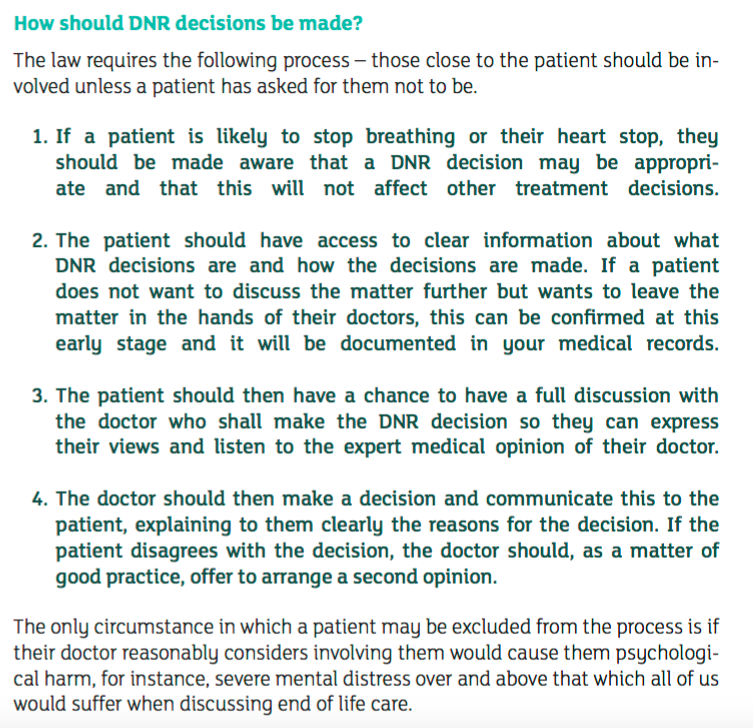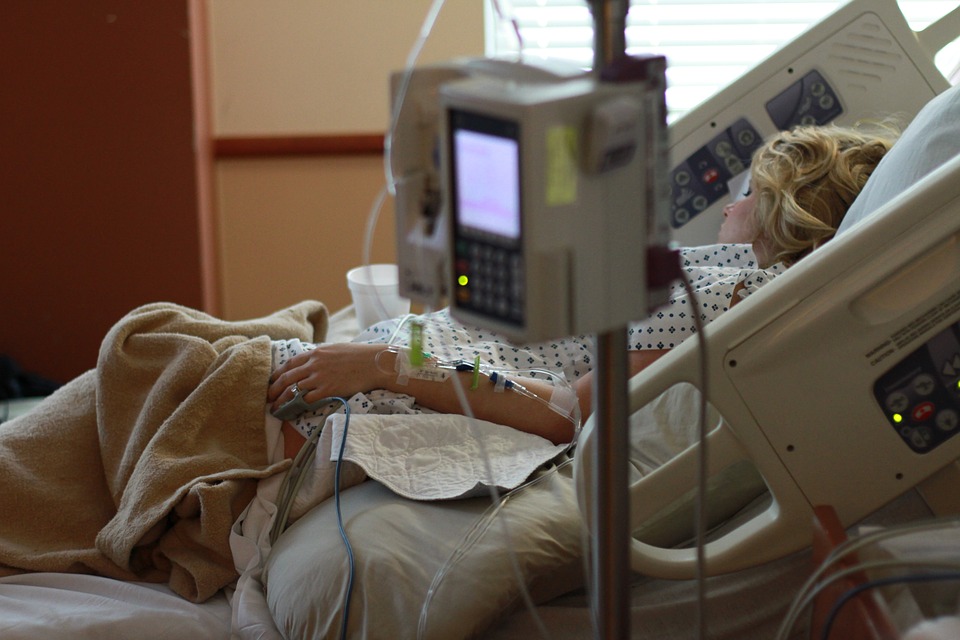The Telegraph reports today that around 40,000 ‘Do Not Resuscitate’ (DNR) orders are being imposed on dying patients each year without families being told. And in may cases, there is no record of the patient being consulted either. This is potentially in breach of two recent landmark human rights judgments.
A DNR order is a decision is taken in hospital before a person dies that, if they stop breathing or their heart stops beating, they will not be actively resuscitated – in other words, kept alive. In recent times, the courts have been very clear that patients and sometimes relatives must be consulted in order for hospitals to comply with human rights laws.
In the David Tracey case, the Court of Appeal said that where possible, patients must be properly consulted before doctors apply a DNR notice, or else their right to private life, protected under Article 8 of the European Convention on Human Rights, would be breached – see the UK Human Rights Blog.
Following from the Tracey case, in 2015, the High Court said the duty also applied to people who lacked the mental capacity to make the decision themselves. Mr Justice Blake said that Carl Winspear’s mother Elaine should have been consulted before the DNR notice was applied.
The Telegraph reports:
It is estimated that every year, more than 200,000 patients are issued with do not resuscitate orders, instructing doctors not to attempt cardiopulmonary resuscitation if the patient suffers a cardiac arrest or stops breathing. The official audit of 9,000 dying patients, conducted by the Royal College of Physicians, reveals that one-in-five families were not informed that a “do not resuscitate” order had been put in place – equivalent to the families of 40,000 patients. The same study showed that in 16 per cent of cases, there was no record of a conversation with the dying patient, or explanation for the lack of one, for the decision to put in place a do not resuscitate order.
What are your and your family’s rights?

Each case will depend on its particular facts as to who should have been consulted. But it is seriously concerning that there appear to be thousands of cases each year in which the family and even the patient themselves are not being asked whether they want a DNR notice or not. The General Medical Council and British Medical Association have both produced guidance (the BMA guidance is far more detailed)
You can read a useful guide for patients produced by Leigh Day & Co, solicitors who acted in both of the cases mentioned above, here. Here’s a key bit from the guidance:

Read more on how human rights protect health.







